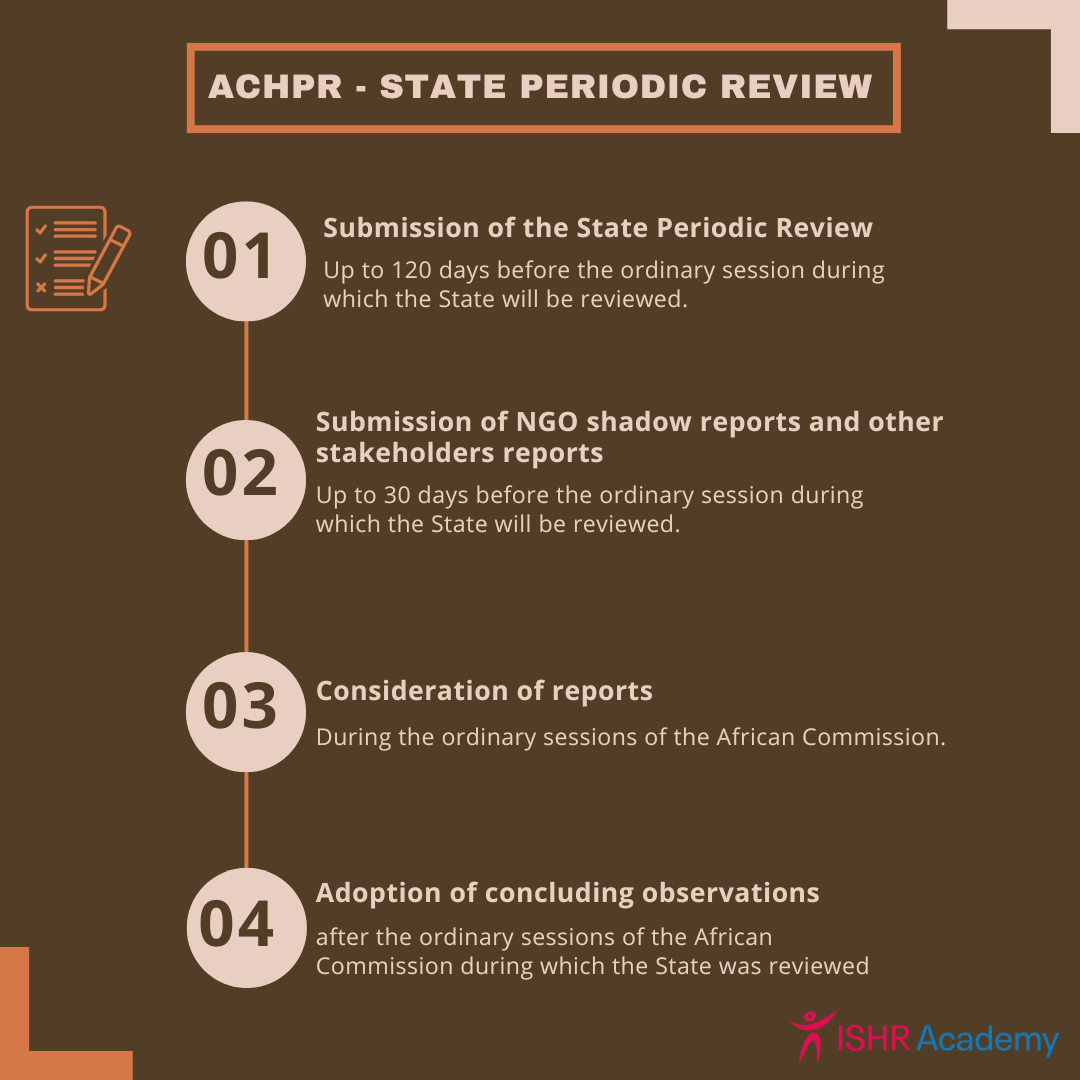The State Periodic Review is the main human rights promotion mechanism of the African Commission. It is set out in article 62 of the African Charter and is further laid out in rules 78 to 83 of the Rules of Procedure.
The State Periodic Review, as a monitoring process consists of four main steps:

State reports are made available on the African Commission’s website ahead of the ordinary session, here, once submitted by the State. For more information on what States shall include, please refer to our Road Map on the State Reporting Procedure.
Shadow reports can be submitted by any other parties - yes, even you! - whether they have obtained consultative status or not. To learn more about the submission of shadow reports, see Section 2.6 Writing a shadow report.
During the consideration of reports, States’ representatives present their report during a public meeting of the ordinary session. Commissioners then ask questions on the content of the State report to the State representative and may request additional information on any particular item. Commissioners will use the information they have received in shadow reports to interrogate the State reports. Finally, at the end of the consideration process, the African Commission will formulate Concluding Observations, which include recommendations to the State on human rights issues that may need redress. The African Commission can follow up on the implementation of recommendations, but it does not have the power to compel states to comply with a recommendation. Note that a Commissioner who is a citizen of the State being reviewed may not participate in the consideration of their State report.

State participation in the periodic review, including reporting and attendance, has historically been very inconsistent across the continent, with some countries never having participated at all. Before engaging it is useful to check the previous record of participation or non-participation of your country.
Moreover, it is important to bear in mind that, even if your recommendations are adopted, the State periodic review cannot single-handedly solve all human rights issues or concerns in a country overnight. As such, it is important to view the submission of a shadow report as complementary to your other advocacy activities.

Ahead of the 69th ordinary session of the African Commission, ISHR and the Intersectional Network of Namibia submitted a shadow report drawing attention to violations of the rights of LGBTIQ+ people and defenders in the country. The report urged Namibia to repeal discriminatory laws against the LGBTIQ+ community and to align its national legislation with the African Charter, which prohibits all forms of discrimination. The Namibian delegation engaged with NGOs and expressed their commitment to respecting the human and fundamental rights of all citizens. The insights from the report contributed to the decriminalisation of same-sex relations in 2024.
Go to the next section for tips on how to write a shadow report.